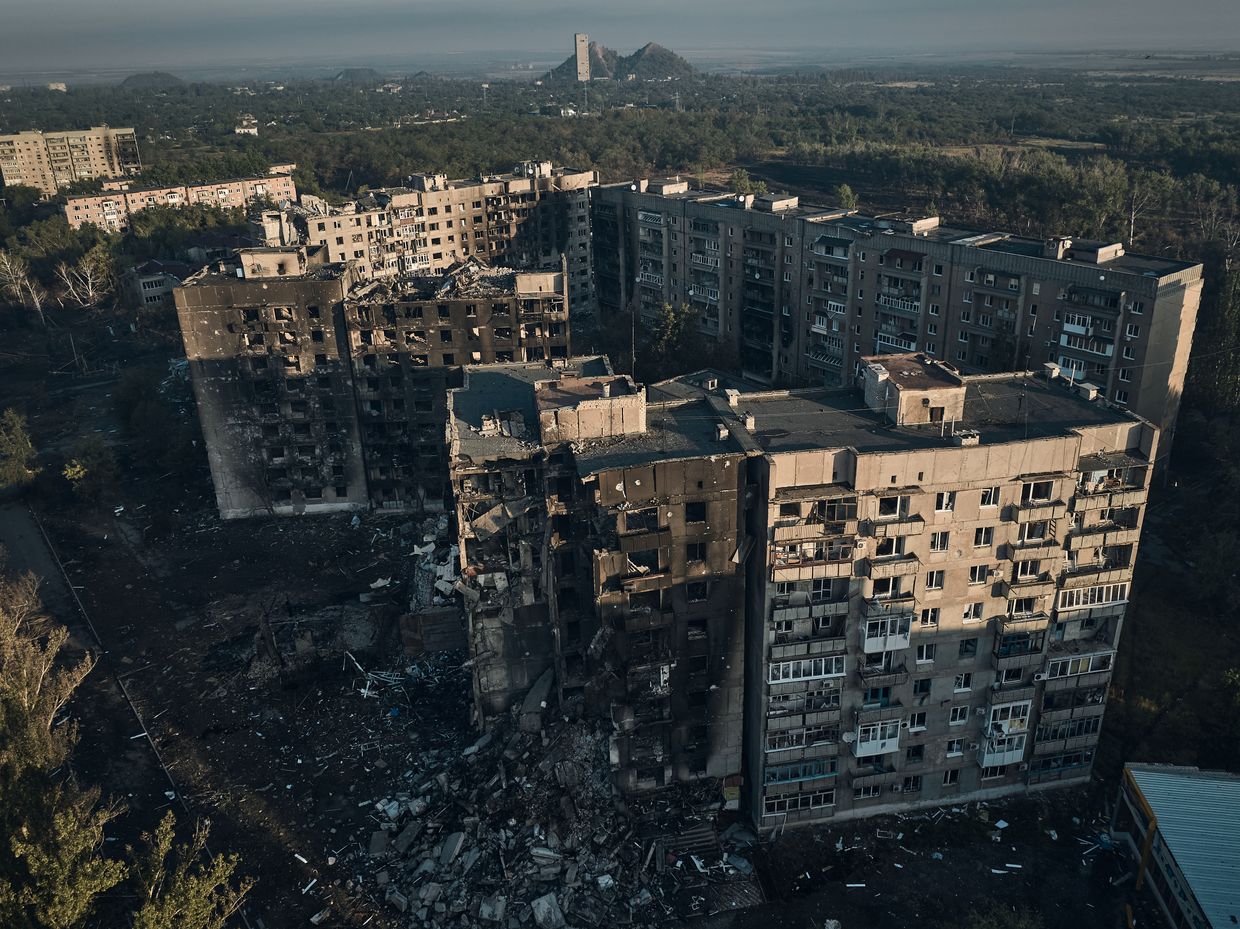Russia's illegal use of Starlink terminals hastened fall of Vuhledar, WP reports

Russian forces are using black-market Starlink internet terminals en masse on the front lines in Ukraine, contributing to territorial gains, the Washington Post (WP) reported on Oct. 12.
Elon Musk's company SpaceX began providing Starlink terminals to Ukraine shortly after the full-scale invasion, giving Kyiv a crucial battlefield advantage. While SpaceX does not sell units to Russia directly, Russian troops in Ukraine continue to obtain Starlink terminals through shadowy supply chains and intermediaries.
The proliferation of Starlink terminals among Russian front-line troops has contributed to Moscow's recent battlefield gains, including the occupation of Vuhledar in Donetsk Oblast, the WP reports, citing several Ukrainian soldiers and military officers.
"They just overpowered us," an officer in the 72nd Mechanized Brigade, one of the units defending Vuhledar, told the WP.
The officer said Russia's access to Starlink was a key factor in the loss of the city, along with weapons and personnel shortages.
A drone platoon commander with the 93rd Mechanized Brigade said that while Ukraine's Starlink terminals previously gave them a technological edge over Russian forces, that advantage has now disappeared.
"Before, the Russians couldn't control some of their movements, maneuvers, artillery, infantry," he said.
When Ukraine intercepted Russian radio transmissions, they observed soldiers frequently giving incomplete or wrong information to their commanders, the platoon commander said. That has now changed.
"Now they will only improve, and unfortunately, that's what's happening across the board," he said.
Starlink allows for faster, more secure communications and has thus become indispensable to Ukraine's ability to communicate on the battlefield. Russia's previous reliance on radio communications set the otherwise larger, better-armed force at a disadvantage.
The Pentagon, which financially supports Starlink access for the Ukrainian military, announced in May 2024 that it is working to prevent Russian troops from using the terminals in Ukraine.
The U.S. has become "heavily involved in working with the government of Ukraine and SpaceX to counter Russian illicit use of Starlink terminals," Defense Department Assistant Secretary for Space Policy John Plumb said on May 9.
Despite these assurances, Starlink use has continued to expand across Russian lines this year, the WP reported. Ukrainian troops near the embattled front-line city of Pokrovsk said they began seeing Starlinks in Russian positions beginning last month.
A battalion commander in the 47th Separate Mechanized Brigade said Russia's Starlink access helped them advance toward Pokrovsk and that more must be done to combat Russian use of the devices.
"It is something that kills us," he said.
Disabling Russia's terminals has become difficult in part due to shifting front lines, Stacie Pettyjohn, defense program director for the Center for a New American Security, told the WP.
"Ukrainian forces are in Russia now. Where exactly are the front lines?" she said.
"If there's a line drawn as to where it works and where it doesn't, you’re basically fixing the front lines where they are and preventing the Ukrainians from going on the offensive."
Disruptions to Ukrainian troops' Starlink access have occurred before, particularly during Russia's spring offensive against Kharkiv Oblast and when Ukrainian forces launched their incursion into Kursk Oblast in August.
Musk has denied selling any Starlink units to Russia and said that Starlink would not connect to any devices there. Russian soldiers nonetheless continue to obtain devices through a robust black market supply chain.
According to the WP's analysis of some Russian sites selling military supplies, the Starlink terminals are most often sold via Telegram and travel to the front via Moscow. The majority of terminals come from Europe and are transported through the United Arab Emirates, with warnings not to activate the device in Russia.
To activate the terminal, users require a foreign phone number, email address, and bank account.
Tymofii, a drone pilot with the 47th Separate Mechanized Brigade, said Russian forces appeared to have no shortage of Starlink terminals.
"They have a lot of them. … They use them the same way we do," he said.













